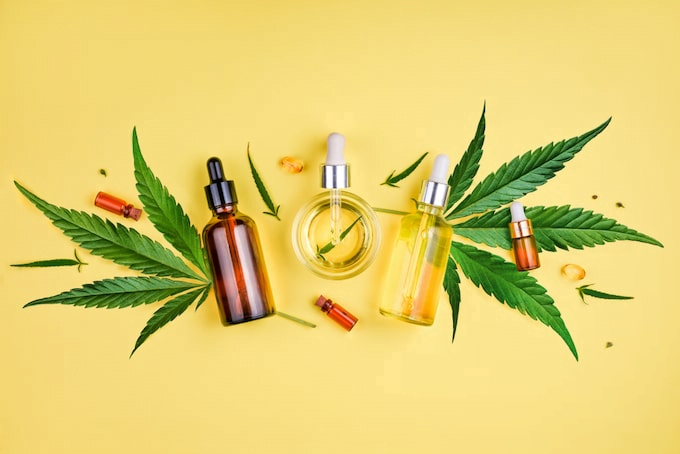
Absolutely! Free samples are often provided with orders to give customers a chance to try up-and coming products and to get feedback on which new products customers like.
Free samples, which are usually included with orders, are important for research chemical and noid suppliers because samples allow an opportunity to get feedback on new and upcoming noids, research chemicals and other novel psychoactive substances. This is similar to how most retail stores will try a small display for a new product and see how it goes before committing to a larger purchase, or how a bakery will give out free samples of a new cookie they are trying out before making it a regular feature on their menu.
Bonus packages
In normal circumstances a supplier will often include a small bonus package, usually enough for a single-use, along with a regular customer’s order. When they notice that the repeat customers begin ordering the new product on their following orders they know their customers liked the new product. This indirect feedback allows them to decide which of the new substances they want to order in larger quantities for their customer base and tells them which products are worth putting effort into marketing to their more casual customer base.
This is especially important when a main production country like China institutes a ban, research chemical and noid suppliers are forced to quickly find new chemicals for their market base that are not subject to the new ban. Bans like the Chinese Communist Party’s(CCP) synthetic cannabinoid ban that was effective July 1st, 2021*[1] severely handicapped access to the more tested, and often safer, existing drugs and thus forcing suppliers to search for more and more exotic compounds to keep up with the new laws. The CCP also included 18 other novel psychoactive chemicals in this ban.*[2]
This same process was evident with several bans in the past. An infamous example being the ban on imports of caffeine to mainland Europe during the Napoleonic wars causing a switch from coffee to chicory root tea and later the same blockade during World War 2 lead to the adoption of Pervitin (Methamphetamine) as the go-to stimulant of Germany for the duration of the war.
In 2000 the Taliban ended Afghan domination of heroin markets by banning opium farming caused fentanyl and analogs to begin to take over,*[3] interestingly both Bush Jr and Sr served on the board of Eli Lilly, a major opiate producer.*[4]
These bans just put pressure on drug manufacturers and suppliers to get around the ban with whatever new tricks are available to them. The ban on cannabis in the USA and worldwide produced the synthetic cannabinoids like AB-FUNACA. The bans on LSD-25, the original form of Acid Hoffman created/took in 1938 and trialed in humans on himself for the first time on his infamous bicycle ride in 1943, lead to developments on the original LSD-25 molecule. This produced ETH-LAD(N-Ethyl-nor-Lysergic acid diethylamide), 1P-LSD and others. Bans on magic mushrooms/psilocin caused work on Psilocin’s 4-HO-DMT (4-hydroxy-dimethyltryptamine) frame to produce analogs like 4-HO-MET (metocin) , 4-HO-DPT (4-hydroxy-dipropyltryptamine).
Every time one substance is banned, several new ones that get around the rule are created to replace it. Some of them will be roughly equivalent, some will be more dangerous and some will be safer. On the positive side, we get to find new psychoactive compounds as the market pressure causes more and more novel psychoactive drugs to make it to the marketplace, on the negative side customers become the guinea pigs due to a government forcing change on a user base they couldn’t care less about to give the impression they are being hard on crime/drugs.
Region-specific drug bans like this synthetic cannabinoid ban in the USA in 2012*[5] simply pushed the overall drug supply chain to China that was producing over 90% of the world’s illegal fentanyl by 2017.*[6] Later in China the fentanyl analogue ban of 2019*[7] simply caused Chinese manufacturers to switch to making fentanyl precursors for shipment to Mexico.*[8] This law change in China also caused the overall drug supply chain to move to other countries like India.
India has been taking up some of the slack as the CCP looks to dump the image of being an illegal drug-producing nation. Though, it’s clear “that China is undercutting its publicly stated goal of stopping the export of dangerous drugs for illicit use.”*[9] When one port dries up the supply chain just moves around it. Most of the USA’s fentanyl now arrives from China via Mexico; whereas, most of Canada’s arrives via the mail from China.*[10] The market will follow the path of least resistance for comparable profits when possible. With the largest markets for fentanyl precursors from China being Mexico and USA,*[11] the demand for drugs has gone nowhere so suppliers will continue getting more creative to keep up with demand.
On top of creating a more dangerous drug supply, these bans so far have not actually been effective. The 2019 Fentanyl ban has not reduced fentanyl and fentanyl precursor shipments coming out of China, let alone actually impacted the rate of fentanyl-related overdoses overseas.
Sometimes these changes can be for the better. More often however they simply get rid of trusted suppliers and replace them with brand new, unknown and unvetted suppliers with widely varying quality of product. This puts drug users at risk unnecessarily.
Once again we simply see drug users being used as a scapegoat by governments for the government’s inaction on wealth inequality, homelessness and their other designated responsibilities. In 2017 Americans were more likely to die from an opioid overdose than in a car.*[12] In this new 21st Century ‘Opium War’ instead of the Chinese being forced to use Western Opium; “Westerners are hooked on drugs made in China.”*[13]
Free samples continue in 2024!
Flight AMS is absolutely thrilled to be in the business of providing free samples and bonus packages to their customers. It’s not just about the transaction; it’s about the joy and excitement that comes with introducing someone to a new experience. There’s a certain delight in knowing that a small vial or packet can lead to a world of discovery for a researcher or enthusiast. Flight AMS takes pride in being a part of that journey, offering a taste of what’s new and exciting in the realm of synthetic cannabinoids and research chemicals.
The practice of including free samples with orders is a testament to Flight AMS’s commitment to customer satisfaction and product innovation. It’s a fun and engaging way to build a relationship with customers, who eagerly anticipate what surprises might come with their next order. These samples are a gateway to feedback, which is invaluable for the company’s research and development efforts. It’s a symbiotic relationship where everyone wins—customers get to explore new products, and Flight AMS gains insights into their preferences.
In 2024, the tradition of giving continues with even more enthusiasm. Flight AMS understands that the landscape of research chemicals is ever-evolving, and staying ahead means being proactive and responsive to the community’s needs. By including free samples and bonus packages, they not only enhance the customer experience but also foster a culture of discovery and innovation. It’s a celebration of the new, the uncharted, and the potential that lies within each carefully crafted product. With Flight AMS, the adventure is just beginning, and the best is yet to come
Disclaimer: Flight AMS is not responsible for the content of this article. The views expressed herein do not represent Flight AMS’s views, and we do not intend to provide advice of any kind. None of the products mentioned is intended for human consumption. You must be 18 years or older to purchase, and these products are intended for laboratory research only.
References:
[1] https://apnews.com/article/china-health-f093206666969b3cd748a47964de7ae0[2] https://apnews.com/article/china-health-f093206666969b3cd748a47964de7ae0[3] Pg 67 Fentanyl, Inc., Ben Westoff[4] http://www.narpa.org/reference/public.menace[5] https://thehill.com/policy/international/china/552794-china-adding-synthetic-cannabinoids-to-list-of-banned-drugs[6] Pg 13 Fentanyl, Inc., Ben Westoff[7] https://apnews.com/article/china-health-f093206666969b3cd748a47964de7ae0[8] Pg 253 Fentanyl, Inc., Ben Westoff[9] Pg 285 Fentanyl, Inc., Ben Westoff[10] Pg 204 Fentanyl, Inc., Ben Westoff[11] Pg 257 Fentanyl, Inc., Ben Westoff[12] Pg 11 Fentanyl, Inc., Ben Westoff[13] Pg 225 Fentanyl, Inc., Ben Westoff

